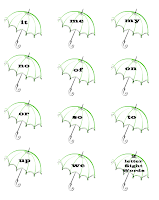It is definitely not difficult to make a travel curriculum, it is just time consuming, but if you think about the time you put into your regular curriculum it works out to be about the same! I thought this series would be a 4 part, but it looks like it may stretch to 6. Today I will share how we learned about the Spanish language for our foreign language potion of our curricula. When we return for 1 month in February, I have enrolled the children in a full immersion school that meets 3 days a week for 4 hours a day. I am hoping to just give them the basics now to help them out when they walk into a room where no one is speaking English. One thing I truly regret, is not speaking to my children in Spanish from birth, they understand some of what is going on, but we Mexicans tend to speak a lot quicker than a beginner can hold on to. As we have long days in the car and many long hours coming up for our road trip, I picked up Cd's and Rosetta Stone. This is perfect for listening to pronunciation and being able to do it without having a formal lesson and books to go along with it. We usually have the local Christian music station, Classical music or a book on tape so this is no different than our usual.
As the kids listen to the audio version of lessons, they jot down notes on what they would like more help with or they have questions on. The Cd's tend to go a little faster than we would like! Once we get back somewhere, they bring their notes in and we work together on correcting their spelling or anything else they need help with, the repetition is key in learning anything.
The main reason I love a curriculum like this, is that it allows all the kids to work together and learn about group work. It also allows all different levels to come together and offer their own insight into things. It can be challenging at times, but it works together quite well at the end.
Our final step in language learning is to make flashcards, but I like to have them make 2 of each word so that they can turn it into a memory game if they desire or so that 2 of them can flip through them at once. Various workbooks offer different words and even music cd's offer plenty of words to listen to and try out on their own. We like to look for words that we know we will use in hotels, on public transportation, at stores, open air markets and the like. Every day high frequency words are the best to use with beginners. At the moment, they pretty much just need a travel vocabulary and then we can build from there!
Follow Me On Facebook!
Follow Me On Pinterest!

































































































